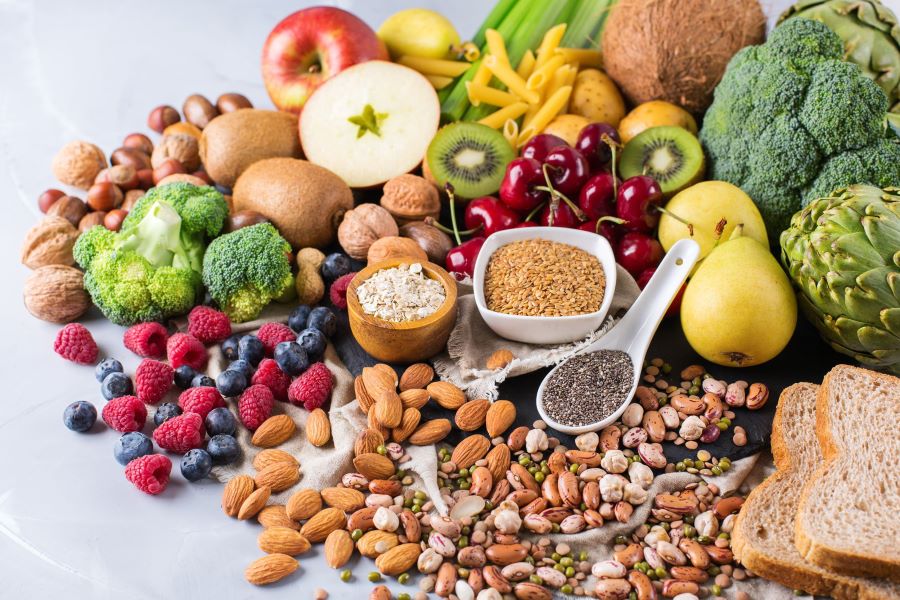Whether surgery is planned or unexpected, it is a source of trauma to the body. You are at a higher risk for recovery after surgery of infection, falls, decreased mobility, weight fluctuation, and fatigue. Even though there are risks, surgery is intended to improve your quality of life in the long run! Nutrition plays a large roll in the process.
Surgery becomes more common as we age, whether from a fall, a car accident, or a health condition. The most common procedures are:
- Knee and hip replacements
- Cancer operations
- Back operations
- Biopsies
- Fracture repair
- Heart surgery
Nutrition is Essential for Recovery
One of the best ways to achieve a quick and complete recovery is to focus on nutrition. Whole foods are the central area of focus – unprocessed foods – because they have lower amounts of fat, sugar, salt, and additives than processed foods. Whole foods also give you more vitamins and fibre, which makes them a better choice after surgery. Please note that your appetite may be low after surgery, but it is essential to try to eat an abundance of vitamins, minerals, and protein and to drink plenty of water. Smoothies are a great way to get the calories and nutrients you need, especially when you have a diminished appetite or difficulty eating.
7 Top Foods to Promote Recovery After Surgery
You can target all kinds of foods after surgery to help speed the recovery process, but here is a list of some easily accessible and healthy foods to consider. It is all about finding the right foods that assist with healing but are also appetizing to your palate.
#1 Citrus fruits
- Oranges, mandarins, grapefruits, pomelos, lemons, limes
Citrus fruits are full of vitamin C and zinc, which aid in repairing tendons and ligaments and healing surgical wounds. These colourful and sweet or tart fruits have plenty of fibre and good water content, which can help prevent constipation. If you’re not fond of citrus, other vitamin C sources include strawberries, kiwi, potatoes, broccoli, and bell peppers.
#2 Berries
- Blueberries, strawberries, raspberries, blackberries, cranberries, pomegranates, grapes
Berries are incredibly nutritious and come in a wide variety of flavours. They are rich in antioxidants, have strong anti-inflammatory properties, and contain several vitamins and minerals. They are also high in fibre, good for the skin, and can help lower high cholesterol and fight off illness.
Berries have vitamin K, which aids in blood clotting; like citrus fruits, they have lots of vitamin C. All berries have vitamin C, but strawberries especially; 1 cup has 150% of the recommended daily intake!

#3 Leafy green vegetables
- Romaine lettuce, spinach, kale, swiss chard, mustard greens, cabbage
Incorporating dark leafy greens into your diet is like having a multivitamin with loads of fibre! After surgery, many pain medications may cause constipation and getting plenty of fibre will help keep things moving. Leafy greens also have B-complex vitamins and iron, which will help you increase your energy and aid in wound healing.
High in nutrients and low in calories, leafy greens have tremendous health-boosting and ailment-preventing properties.
#4 Whole grain cereals and bread
- 100% whole wheat or rye bread, oats, quinoa, whole wheat couscous, buckwheat
Our bodies need carbs, but we must reach for the right ones. Whole grains have many health benefits; eating them after surgery will give you the carbohydrates you need for energy and fibre. When looking at bread, pasta, and cereals, look for 100% whole wheat or multigrain.
#5 Lean meats and alternatives
- Chicken, turkey, seafood, beans, lentils, nuts, seeds, tofu, eggs
After surgery, your body needs a high amount of protein and iron. Protein contains amino acids that aid in tissue regeneration and wound healing and help keep your immune system strong. Red meat is not recommended because it may trigger constipation and contains high saturated fats. If your appetite is weak or you’re having trouble eating, you could consider supplementing your diet with protein powder.
#6 Eggs
Eggs are a powerhouse protein source! One egg gives you:
- 6 grams of protein
- Iron
- Calcium
- Zinc
- B complex vitamins
- Vitamins A, E, and K
Eggs are versatile, easy to prepare, and contain easy-to-digest protein, making them an excellent post-surgery choice. Some sources suggested limiting our egg consumption because of its high cholesterol content, but they have learned that eggs help raise the “good” HDL cholesterol. You can have up to 3 whole eggs a day!
#7 Water
If drinking plain water doesn’t appeal to you, you can try:
- Flavouring your water with fruit (lime, lemon, or berries)
- Eating soup or other high-water-content foods
- Drinking coconut water
- Add extra liquid to a smoothie
- Drinking herbal teas
Although technically not food, water is one of the most overlooked things we must consume after surgery. Dehydration is common after surgery; you will recover faster if you stay hydrated. Talk to your doctor about your medications – some require you to take in more fluid than usual.
The healthcare team at Promyse will work with your parent or loved one’s doctors, specialists, and caregivers to tailor a care plan designed for the quickest recovery at home after time in a hospital.
Recovery in a comfortable and familiar environment can make a big difference, whether after significant surgery, a motor vehicle accident or illness, or a minor procedure.



